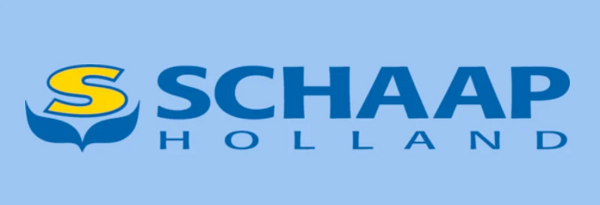"Basic product sales are up," begins Moniek Wisse, Schaap Holland's account manager for, among others, marketing freshly peeled potatoes to the retail and foodservice sectors. That is not surprising, given the economic conditions. "Potatoes let you put a healthy, sustainable, affordable meal on the table. That's what consumers turn to instead of exotic, expensive world dishes. Potatoes are, indeed, becoming popular again."

Still, she adds that, in the Netherlands, potato consumption is declining. Though, because chilled freshly peeled potatoes are convenient, more of those are eaten than classic ware potatoes. "During the pandemic, people had more time to cook. Now, they're busy again, socializing and working, leaving them less time to cook. It has to be quick. But also for healthcare facilities and restaurants - facing staff shortages - peeled potatoes are ideal," Moniek says.
Even though there is less time to cook, she sees another COVID-19 consequence has stuck: the focus on healthy eating. "The pandemic contributed to consumers choosing what they eat more consciously." The account manager points out that potatoes fit perfectly with this and other current trends. "Whatever the trend, potatoes provide a solution." Besides being healthy, potatoes are plant-based, and Dutch potatoes lean into the locally-grown focus. "Plus, it takes minimal effort to serve potatoes, especially as part of one-pot dishes like stews," explains Moniek.

Increased streams
The focus on energy usage not only affects the general public but it demands the entire chain's attention. "We, too, have to deal with that since peeling and then cooling those potatoes requires energy." Moniek notes that retailers are adapting to the current economic conditions by reducing their range depth, and suppliers are bundling their offerings to cut costs and be able to continue marketing affordable products. "The advantage is that there's a high SKU rotation, so products are fresher. Larger flows are also created, so products are offered more cheaply," she states.
These economically challenging times are making for increased cooperation throughout the chain, says Wisse. "Shoppers must keep wanting to buy potatoes; that's something in which the entire chain has a vested interest. The whole chain - from variety developers and growers to chilled potato suppliers and retailers - wants to work together to show people what you can do with this staple product. They want to encourage them to eat potatoes more often.” She says this cooperation will also be vital when it comes to facing promotional pressure, which she expects to increase. "We have to solve that, requiring all the links to work together."

Product availability
Moniek concedes that the chain, as a whole, is succeeding in maintaining product availability well. "That doesn't apply to all supermarket products, but Dutch potatoes are faring well. There are always new global events like logistical delays due to truck strikes in France or the geopolitical situation in Eastern Europe. Those affect product availability. We can, however, keep shelves nicely stocked with locally-grown potatoes."
Besides cultivation sustainability - Schaap Holland buyers prefer potatoes produced according to Food Security, GlobalGAP, PlanetProof or organic protocols - the sustainability aspect of packaging also receives attention. Although they use recycled foil, Moniek says they have to use plastic, for now, to ensure another element of sustainability, the chilled freshly peeled potatoes' shelf life. That said, the potato processor is open to new developments.
"Everything refrigerated uses plastic packaging. Everyone wants to reduce that, but we also want our peeled potatoes to last as long as possible. We tested other materials, but for the time being, they don't genuinely benefit the chain. You don't want to waste food, so the products must last as least as long as with the current packaging. That offers the packaging industry opportunities to develop nice alternatives," concludes Moniek.

Moniek Wisse Schaap Holland
Schaap Holland
Oogstweg 7
8256 SB Biddinghuizen
T: +31 (0)6 1108 0823
m.wisse@schaapholland.com
www.schaapholland.com
